News

Ravi K’s Bill to repeal Online Safety Act gazetted
The bill to repeal the Online Safety Act, No. 9 of 2024, has been gazetted.
The gazette notification states that upon the passage of this bill, the Online Safety Act, No. 9 of 2024, will be repealed.
The gazette notification further states that if there are any regulations related to this, all such regulations will also be repealed.
The gazette notification notes that in the event of any inconsistency between the Sinhala and Tamil language texts of this Act, the Sinhala language text shall prevail.
The Bill that has been gazetted was submitted by opposition MP Ravi Karunanayake.
The Online Safety Bill was passed by a majority vote in Parliament on 24 January 2024.
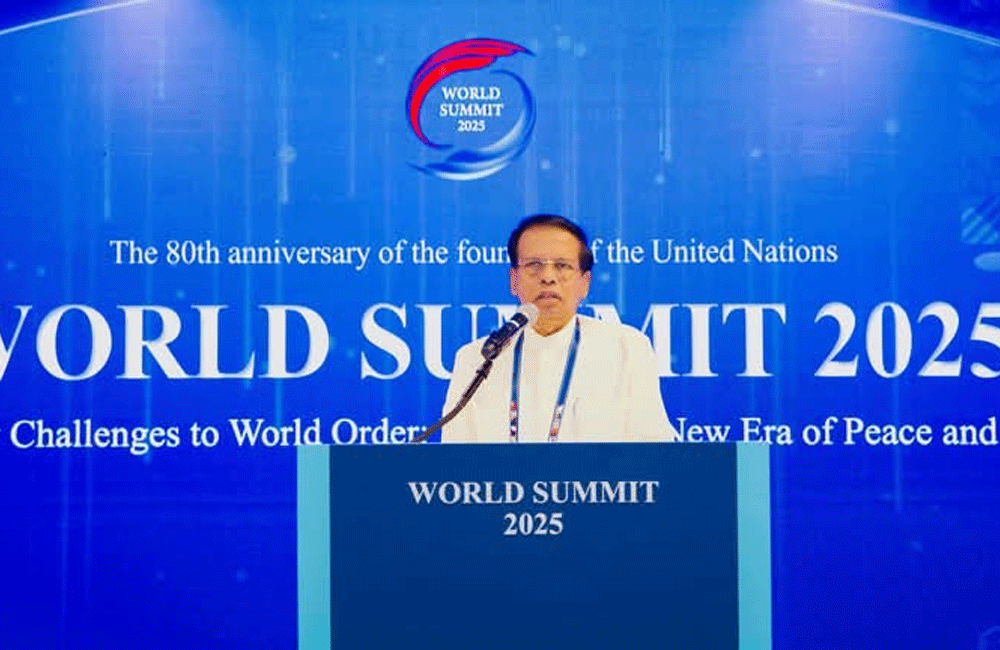
Maithripala attends 2025 World Summit of the Universal Peace Federation
Former President Maithripala Sirisena attended the 2025 World Summit of the Universal Peace Federation in South Korea, from 10-14 April, as a Chief Guest.
Maithripala Sirisena, the Asia-Pacific Regional Chair of the International Peace Summit Council of the World Peace Conference, delivered a special address at the inaugural session of the Global Summit.
During his address, Maithripala Sirisena emphasised the need to build a bicameral global organisation that integrates religion and politics to maintain global political stability and peace, manage climate change, and manage conflicts.
The 2025 Global Summit was attended by former heads of state, current speakers, current members of parliament, and other diplomats, scholars, and professionals from about 40 countries.
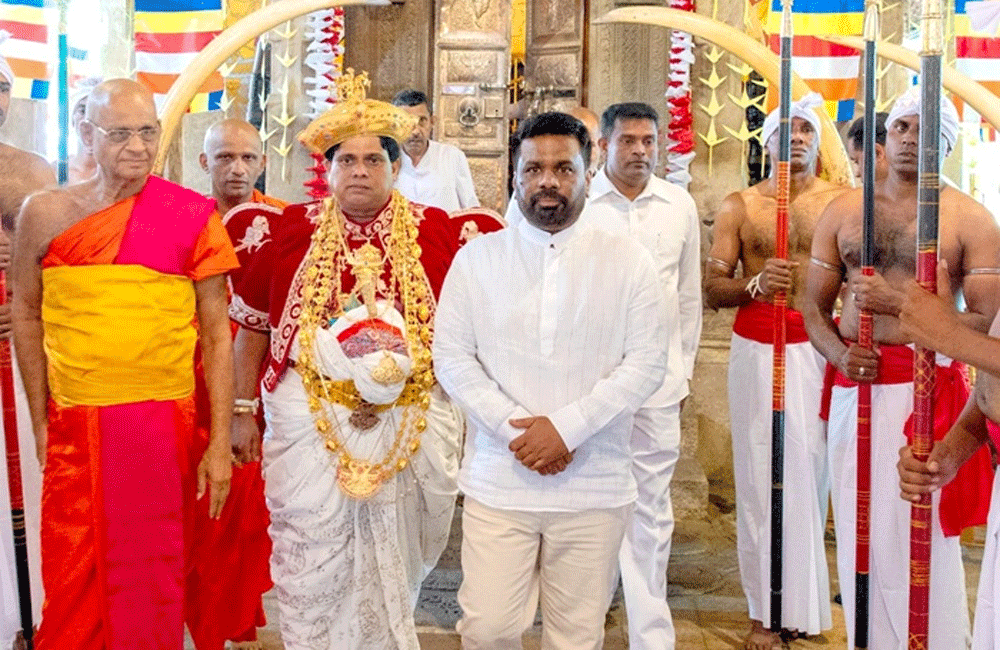
President inaugurates ‘Siri Dalada Vandanawa’
The ‘Siri Dalada Vandanawa’, a special exposition of the Sacred Tooth Relic in Kandy, was inaugurated by President Anura Kumara Dissanayake today, after a period of 16 years.
Following the inauguration, the President paid homage to the Sacred Tooth Relic of Lord Buddha, after which it was opened to the public.
Several foreign diplomats, including Ambassadors and High Commissioners, were also present on the occasion.
At the request of the President, the ‘Siri Dalada Vandanawa’ was organised under the guidance of the Chief Prelates of the Malwathu and Asgiri Chapters, and under the direction of the Diyawadana Nilame of the historic Temple of the Sacred Tooth Relic in Kandy.
The special exposition of the Sacred Tooth Relic will continue for 10 days, from today until 27 April.
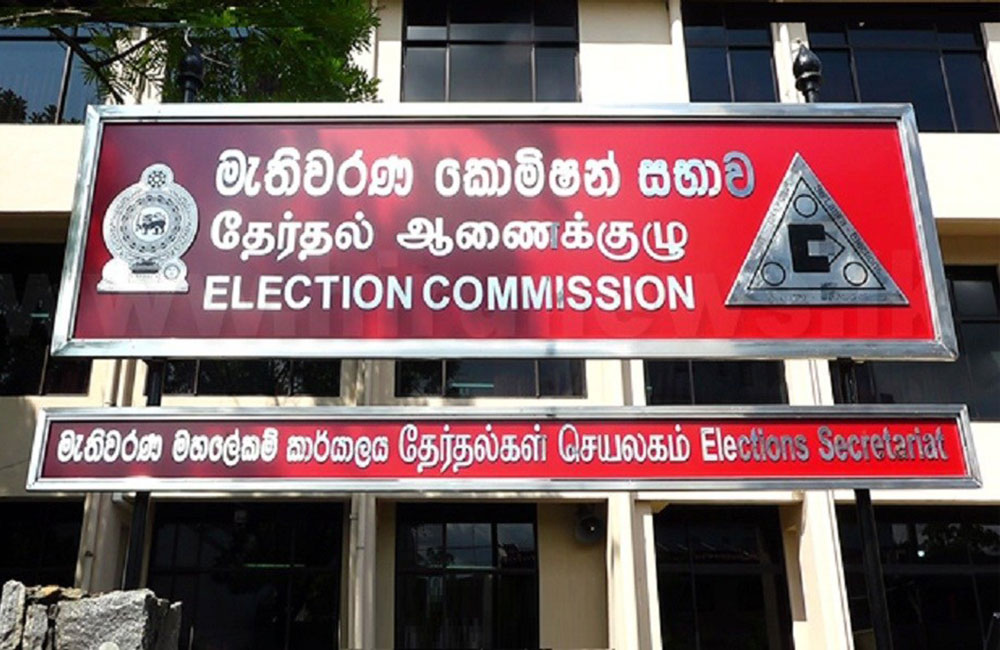
Postal voting delayed in 18 local govt bodies, including CMC
The National Election Commission states that postal voting in 18 local government bodies, including the Colombo Municipal Council, will be delayed.
This delay is due to the postponement of printing of postal ballot papers, following an interim injunction that prevented the local government elections scheduled for May 6th, in these local government bodies.
Chairman of the National Election Commission R.M.A.L. Rathnayake stated that they are currently studying the court rulings and taking steps to inform the Government Printer.
However, postal ballot papers for 227 local government bodies have already been distributed.
Postal voting for the upcoming local government elections is scheduled for the 22nd, 23rd, and 24th of this month.
Voters who are unable to cast their votes on those dates can do so on April 28th and 29th.
The Court of Appeal issued an interim injunction on the 7th of April, suspending the election proceedings in 18 local government bodies, including the Colombo Municipal Council.
This was in response to writ petitions filed by several political parties and independent groups against the rejection of their nominations.
However, on the 11th of this month, the Court of Appeal ordered the removal of this interim injunction.
This order was issued after ordering the re-acceptance of the rejected nomination papers submitted for those local government bodies.
The Court of Appeal issued this order after considering a motion filed by the Attorney General.
(News 1st)

Gujarat Titans Pick Dasun Shanaka as Replacement for Injured Phillips
Gujarat Titans (GT) have brought in Sri Lanka allrounder Dasun Shanaka as a replacement for the injured Glenn Phillips for the remainder of IPL 2025.
Shanaka has played for GT in the past, in 2023, and comes in for INR 75 lakh (USD 87,800 approx.).
Phillips had picked up a groin injury while fielding against Sunrisers Hyderabad (SRH) in Hyderabad just over ten days ago, and was later ruled out of the tournament to head back home, to New Zealand.
Shanaka has played only one season of the IPL so far, when he got three games for GT, scored only 26 runs and didn't get to bowl at all two seasons ago.
GT had earlier lost the services of Kagiso Rabada, on April 3, when he left home for "an important personal matter". There is no clarity on when, and if, he will return to India. GT hadn't named a replacement for Rabada.
GT have won four of their six games and are on second spot on the points table with nearly half of the league stage over. Their next match is the afternoon game on Saturday, at home against table-toppers Delhi Capitals (DC).
Source: ESPN cricinfo
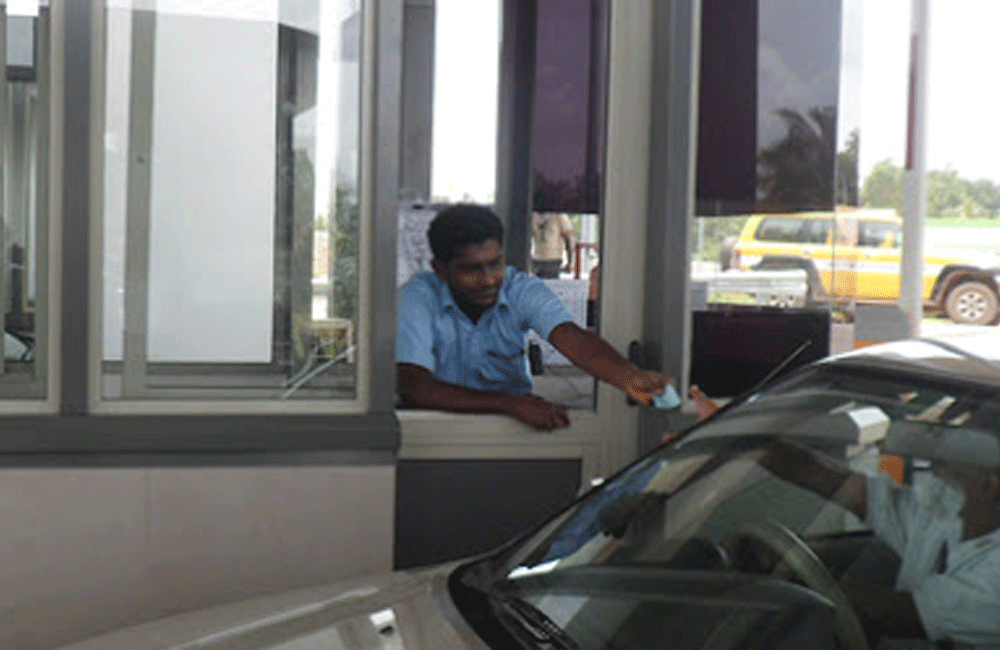
RDA revenue from expressway tolls up by 30%
The revenue generated by the Road Development Authority (RDA) through expressway tolls on 11, 12 and 13 April has increased by 30% in comparison to the income generated during the same period last year.
A total of 387,586 vehicles had used the expressways on 11, 12 and 13 April, according to the Director of Expressway Operation Maintenance and Management Division, R.A.D. Kahatapitiya.
Accordingly, the RDA has generated an income of Rs. 134,498,800.
Kahatapitiya added 163,541 vehicles used the expressways on 11 April, and the RDA generated an income of Rs. 54,066,450, while on 12 April, 134,195 vehicles used the expressways, and their income was Rs. 47,012,350.
Furthermore, 89,850 vehicles have entered expressways on April 13, which has generated an income of Rs. 32,120,000 for the RDA.

LG Elections 2025: Postal Voting Dates Revised
The Election Commission says that dates for marking postal votes for the upcoming Local Government Elections scheduled for May 6, 2025 have been revised.
Chairman of the Election Commission R. M. A. L. Ratnayake said that postal voting will now take place on April 24, 25, 28, and 29.

Sinhala & Tamil New year : PM’s message
Let us step into the New Year with renewed hope and a vision, as we continue to work together toward “a prosperous country and a beautiful life.”
I extend my heartfelt wishes to the Sinhala and Tamil people of Sri Lanka, who celebrate the New Year in unity and generosity.
This New Year dawns at a moment when a new change is essential in every aspect of our lives. This traditional festivity reminds us to bring about positive change that is deep rooted in our culture and values, and move forward together in unity.
In recent years, the economic crisis made even the thought of celebrating the New Year a painful experience for many. However, the courageous efforts of the people to break free from a cycle of corruption and fraud, has led the path for the emergence of a new beginning.
Thus, the 2025 New Year marks a significant turning point. It is a year where communities from the North, South, East, and West unite and continue to work together under democratic principles to build a better future. In the upcoming month of May, the people’s aspirations will once again bear fruit.
At this moment when a new chapter begins with the New Year, I urge every citizen to act with respect, peace, and compassion in community. Let us commit ourselves to move forward with dedication, trust, and resilience to achieve success and progress in the coming year.
To all Sri Lankans celebrating Sinhala and Tamil New Year, I wish the nation is blessed with the strength, unity, and new energy needed for meaningful transformation and a prosperous tomorrow.
Wishing you all a very Happy New Year!
Dr. Harini Amarasuriya
Prime Minister
Democratic Socialist Republic
of Sri Lanka
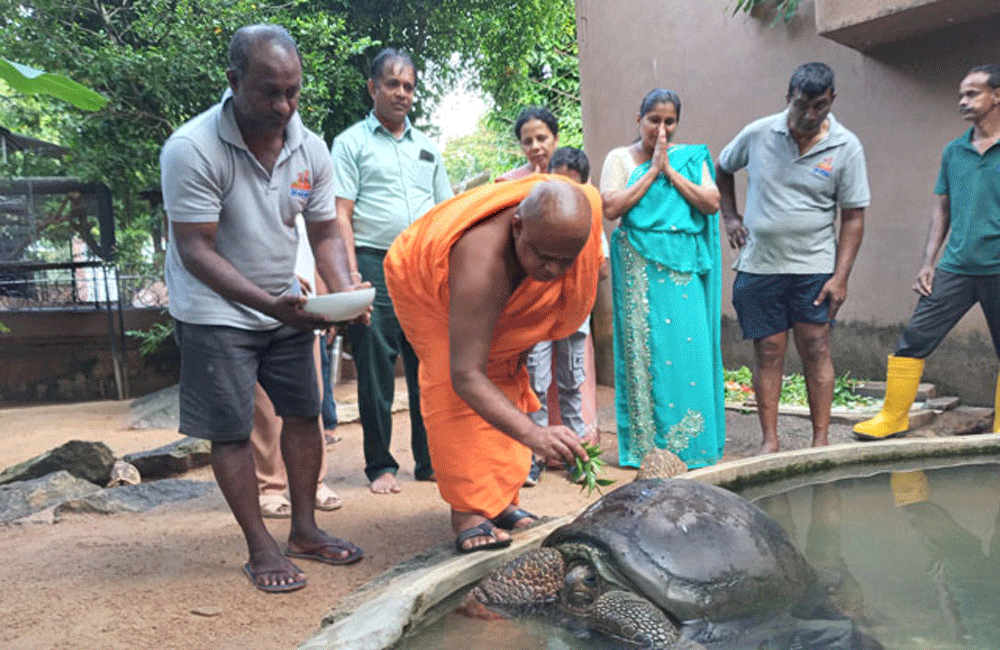
153-Year-Old Tortoise Anointed Oil at Dehiwala Zoo
The Dehiwala National Zoological Gardens hosted a special oil anointing ceremony, marking a significant cultural tradition.
Among the participants was Sri Lanka's oldest living animal, a 153-year-old giant tortoise, who stole the spotlight with its presence.
The ceremony, held amidst the lush greenery of the zoo, attracted many visitors.
The giant tortoise, revered for its longevity and symbolic representation of wisdom and resilience, was gently anointed with oil, following the traditional practices that aim to bless and protect the animals.
The Sinhala and Tamil New Year, celebrated in April, is one of the most significant cultural events in Sri Lanka. Among the various traditions observed during this festive period, the oil anointing ceremony holds a special place.
The oil anointing ceremony, known as "Hisa Thel Gaema," is performed to invoke blessings of good health and prosperity for the coming year.
This ritual typically takes place at an auspicious time, which is determined by astrologers.
his ritual is often led by religious leaders and is accompanied by the chanting of blessings.
The oil anointing ceremony is not just a religious practice but also a communal event that brings families and communities together.
The ceremony is widely observed across the country, with notable events held at historic temples and cultural sites.
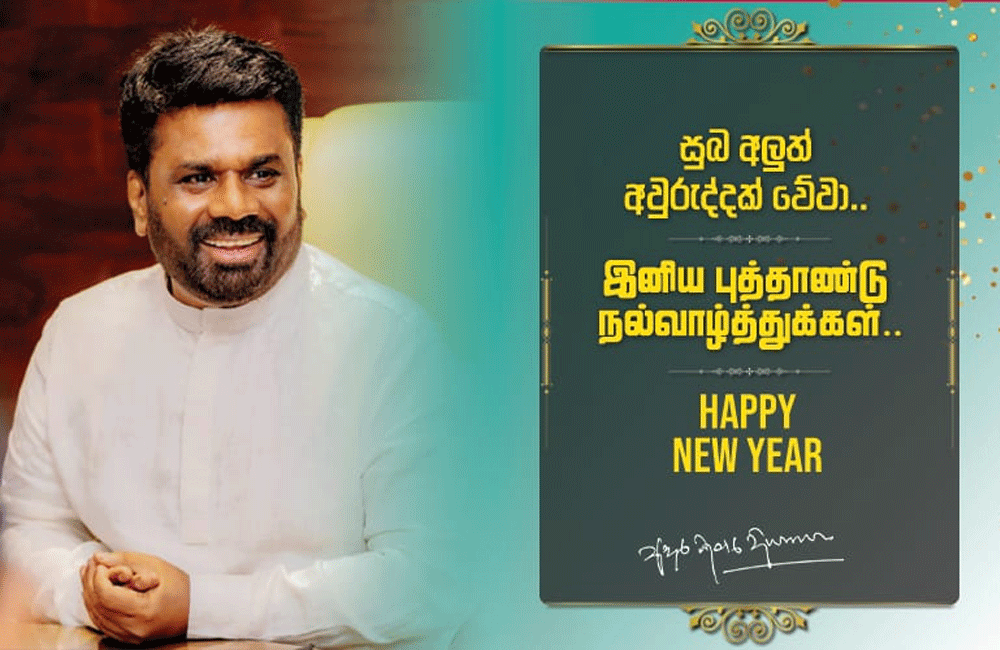
Sinhala & Tamil New year: President’s message
As we celebrate the Sinhala and Tamil New Year this year, a festival that symbolises the hope of both physical and spiritual renewal, our nation finds itself at a defining moment, achieving significant victories while resolutely striving towards the realisation of a better and more prosperous future.
It is with profound joy and gratitude that I reflect upon the efforts undertaken by the National People’s Power government over the past months to lift our nation from adversity and steer it towards economic, social and political advancement. The successes we have thus far achieved rightfully belong to the people of this country, whose steadfast trust, as expressed in the most recent Presidential and General Elections, has been the driving force behind this transformative journey.
As a responsible government, we possess the strength and determination to further deepen our commitment to the nation, even amidst formidable challenges. We are implementing well-considered plans to address the multifaceted challenges confronting our country, both in terms of national development and within the broader geopolitical landscape.
The Sinhala and Tamil New Year traditions beautifully reflect the harmony between humanity and nature, bearing witness to the deep-rooted history of coexistence between our Sinhala and Tamil communities. While contemporary society may be burdened by various divisions, occasions such as the New Year provide a timely reminder of the enduring values of unity, harmony and peaceful coexistence. It is our solemn responsibility, particularly at this time of renewal, to nurture those values within ourselves and to foster a more compassionate and ethical society.
Moreover, the rituals associated with the sun’s transition are underpinned by the universal aspiration to create a renewed individual, one free from outdated thoughts and attitudes. The New Year, therefore, offers us an invaluable opportunity to embrace renewal in our own lives.
As we welcome this New Year, I call upon all of you to come together with renewed strength, unity and goodwill. Let us collectively work towards a common purpose, supporting the government’s vision for economic, social and political transformation and thereby ensuring enduring progress and prosperity for our country and all its people.
May this New Year bring you and your loved ones peace, happiness, renewed hope and abundant prosperity in your journey towards ‘A Thriving Nation – A Beautiful Life”.
Warmest wishes for a Happy Sinhala and Tamil New Year!
Anura Kumara Disanayake
President
Democratic Socialist Republic of Sri Lanka
14th April 2025
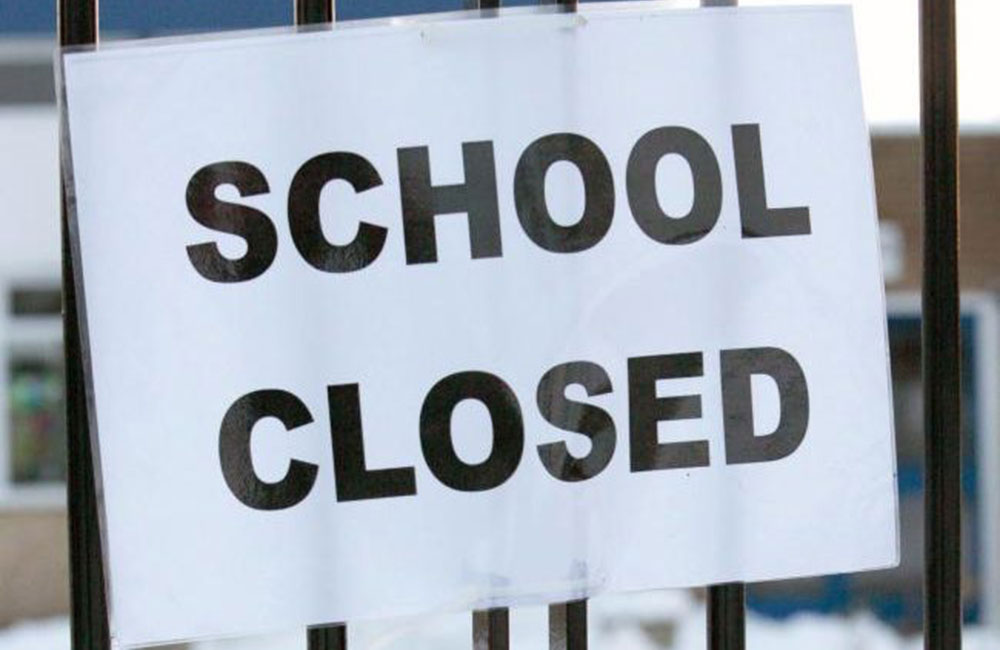
Kandy Schools Close for Relic Exposition
Due to the Siri Dalada Relic Exposition, 37 schools within the Kandy city limits will be closed from April 21st to 25th, as announced by the Central Province Education Department.
The Siri Dalada Relic Exposition, scheduled to take place from April 18th to 28th, is a significant cultural event that draws large crowds, necessitating these measures.
In addition to the school closures, three new access routes have been introduced by the Dalada Maligawa or the Temple of The Sacred Tooth Relic to facilitate the movement of devotees:
-
From D.S. Senanayake Street to the Dalada Maligawa's main entrance.
-
From Ratubokkuwa through the Kandy Lake roundabout (Sangharaja Mawatha) to the main entrance.
-
From Ratubokkuwa through the Kandy Lake roundabout (Maligawa area) to the main entrance.
To accommodate the influx of visitors, the Sri Lanka Transport Board has announced the deployment of 150 additional buses from various regions across the country.
Furthermore, Sri Lanka Railways has planned special train services from Colombo and other areas to Kandy during this period.
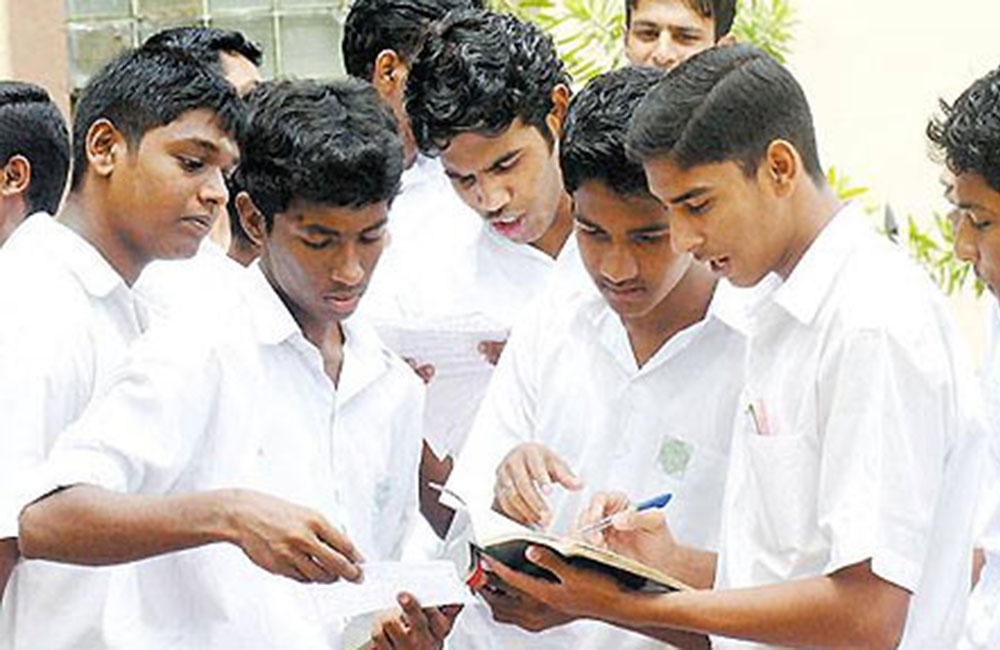
A/L Results Expected After New Year Holidays
The Department of Examinations says that the results of the Advanced Level examination will be released after April 20th.
The results were initially scheduled to be released before April 20th. However, due to several practical issues, the Department said that the release has been delayed.
A total of 333,185 candidates sat for the Advanced Level examination this year.
Page 12 of 540